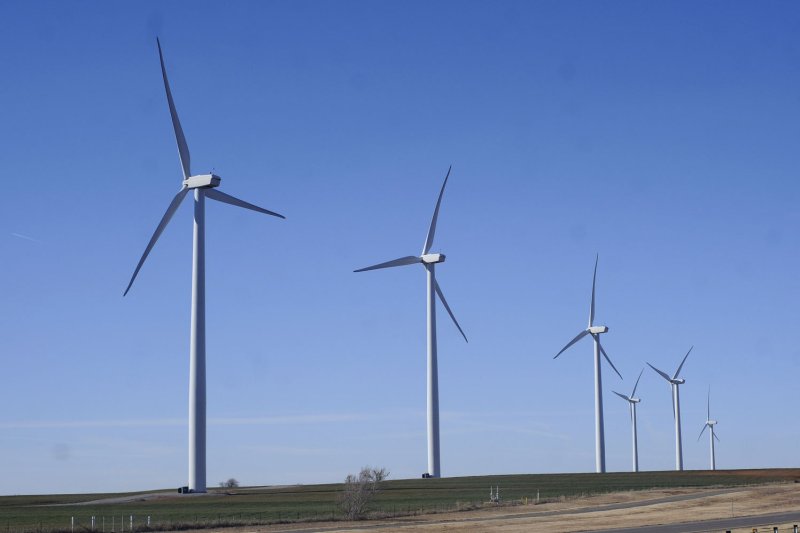Businesses, state leaders and advocacy groups are increasingly pledging to keep working on a low-carbon economy in the wake of White House efforts to clear regulatory hurdles meant to spur low-carbon development. File photo by Kevin Dietsch/UPI. |
License Photo
March 29 (UPI) -- A bubble-up approach to building a low-carbon U.S. economy will help offset the emphasis on fossil fuels from Washington, leaders and advocates said.
President Trump moved to revise and overhaul a series of climate regulations enacted by his predecessor in an effort to fulfill campaign promises of further stimulating the domestic energy sector. Legislation signed by the president aims to "clear burdensome and costly regulations" on energy production."
A pro-oil former businessman, Trump has sought to build support around the energy sector. U.S. Rep. Rob Bishop, R-Utah, said in a statement the president was reversing harmful and "ideologically-driven" policies enacted by former President Obama.
"This common sense action stands to provide clear benefits for the economy, consumers, and the environment," added Barry Russell, the president and CEO of the Independent Petroleum Association of America, in a statement.
Trump's move was in contrast to action in Europe and Asia. Miguel Arias Canete, the European commissioner for climate action, said that, while other major economies roll back, the commitment to a low-carbon economy was steadfast.
"In these turbulent times, shared climate leadership is needed more than ever," he said ahead of a visit to Beijing.
Focusing on U.S. efforts to break ties with foreign oil producers, meanwhile, Jack Gerard, the head of the American Petroleum Institute, said Trump's actions were about increasing U.S. competition, improving the domestic economy and advancing natural security interests.
Outside the energy sector, however, companies and local leaders continue to press for alternatives. In the wake of Trump's announcement, Anheuser-Busch InBev announced a commitment to secure 100 percent of the company's purchased electricity from renewable sources by 2025. In response, the Sierra Club said it is working with business and local leaders that were taking up the mantle in an effort to "lead the transition to clean, renewable energy."
Coal-fired power is on the decline in the United States, and advocacy and industry groups note many of the job gains were coming from the renewable energy sector. Though U.S. oil production is on the rise, governors in states rich in shale touted the benefits of a balanced energy policy.
"We will keep building a clean energy future that creates Colorado jobs, improves our health and addresses the harmful consequences of a changing climate," Gov. John Hickenlooper said in a statement.















